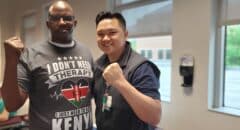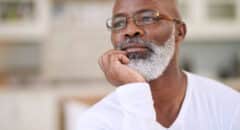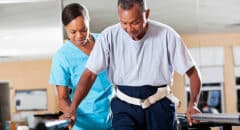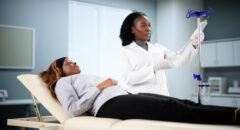
Strokes are most common in old age, but new research suggests that particular lifestyle choices are putting young people increasingly at risk for stroke. In a study, researchers found the rate of strokes among adults younger than 55 nearly doubled between 1993 and 2005. Among African Americans, it climbed from 83 to 128 per 100,000.
The researchers said they could only speculate on possible explanations. One might be that doctors are detecting strokes in young people more often - both as a result of better brain-imaging technology and of being more vigilant for stroke in the young.
"But I really don't think that's the major reason," said lead researcher Dr. Brett M. Kissela, of the University of Cincinnati College of Medicine. "We're definitely seeing a higher incidence of risk factors for stroke now," he said in an interview.
Those risk factors include obesity, diabetes and high blood pressure.
"And if you're developing them at the age of 20," Kissela said, "then you may have a stroke at a younger age, too."
A researcher not involved in the study agreed that better diagnosis and a real increase in young people's risk of stroke are both probably at work. "Now MRI allows us to detect smaller strokes," said Dr. Mitchell S.V. Elkind, of Columbia University in New York, who co-wrote an editorial published with the study. "Strokes come in all shapes and sizes," Elkind said.
That includes subtle symptoms like mild degrees of blurry vision, weakness or numbness. In the past, doctors might not have thought "stroke" when a relatively young person had symptoms like that. And MRI scans, which can detect subtle brain damage from stroke, were not used often back in the 1990s. Kissela's team found that in 1993-1994, only 18 percent of all stroke patients in their study had an MRI. By 2005, that figure had risen to 58 percent.
"But that probably doesn't explain it all," Elkind said, referring to the rising incidence in young people. "We know there's been an increase in obesity and diabetes," Elkind said. He added that drug abuse can also cause strokes, and this study did find an increasing rate of drug abuse among young stroke patients over time. A government study in 2011 found a similar pattern nationwide: Between 1995 and 2008, the number of Americans ages 15 to 44 hospitalized for a stroke rose by more than one-third.
Here's three things you can do right now to prevent a stroke:
1.) Lower blood pressure
Maintain a blood pressure of less than 120 (top number) over less than 80 (bottom number). But for some a less aggressive goal, such as 140/90 may be more appropriate. You can do that by:
- Reduce the salt in your diet to no more than 1,500 milligrams a day (about a half teaspoon).
- Avoid high-cholesterol foods, such as burgers, cheese, and ice cream.
- Eat 4 to 5 cups of fruits and vegetables every day, fish two to three times a week, and several daily servings of whole grains and low-fat dairy.
2.) Drink, But Just In Moderation
Studies show that if you have about one alcoholic drink per day, your risk may be lower (seriously). Once you start drinking more than two drinks per day, your risk goes up very sharply. Here's how:
- Have one glass of alcohol a day.
- Make red wine your first choice, because it contains resveratrol, which is thought to protect the heart and brain.
- Watch your portion sizes. A standard-sized drink is a 5-ounce glass of wine, 12-ounce beer, or 1.5-ounce glass of hard liquor.
3.) Exercise On A Consistent Basis
Exercise contributes to losing weight and lowering blood pressure, but it also stands on its own as an independent stroke reducer. Here's how to achieve it:
-
- Take a walk around your neighborhood every morning after breakfast.
- Start a fitness club with friends.
- When you exercise, reach the level at which you’re breathing hard, but you can still talk.
Also...
- Take the stairs instead of an elevator when you can.
- If you don’t have 30 consecutive minutes to exercise, break it up into 10- to 15-minute sessions a few times each day.
The Importance of the Study
Kissela said the findings underscore the importance of a healthy lifestyle to stave off stroke risk factors in young people. He also said younger adults shouldn't see themselves as "invincible," and instead get to the doctor to see if they do, in fact, have health problems like high blood pressure or cholesterol. Also, since more-severe strokes may cause permanent disability, they could be particularly devastating to a younger person.
Experts advise that everyone, regardless of age, be aware of the potential symptoms of a stroke, which include severe headache, a sudden loss of coordination or balance, sudden numbness or weakness (especially on one side of the body), and trouble seeing, speaking or understanding speech. Most strokes happen when a blood clot blocks the flow of blood, and therefore oxygen, to the brain. If people get to the hospital quickly, doctors can treat them with clot-dissolving drugs that may be able to stop the stroke in progress.









